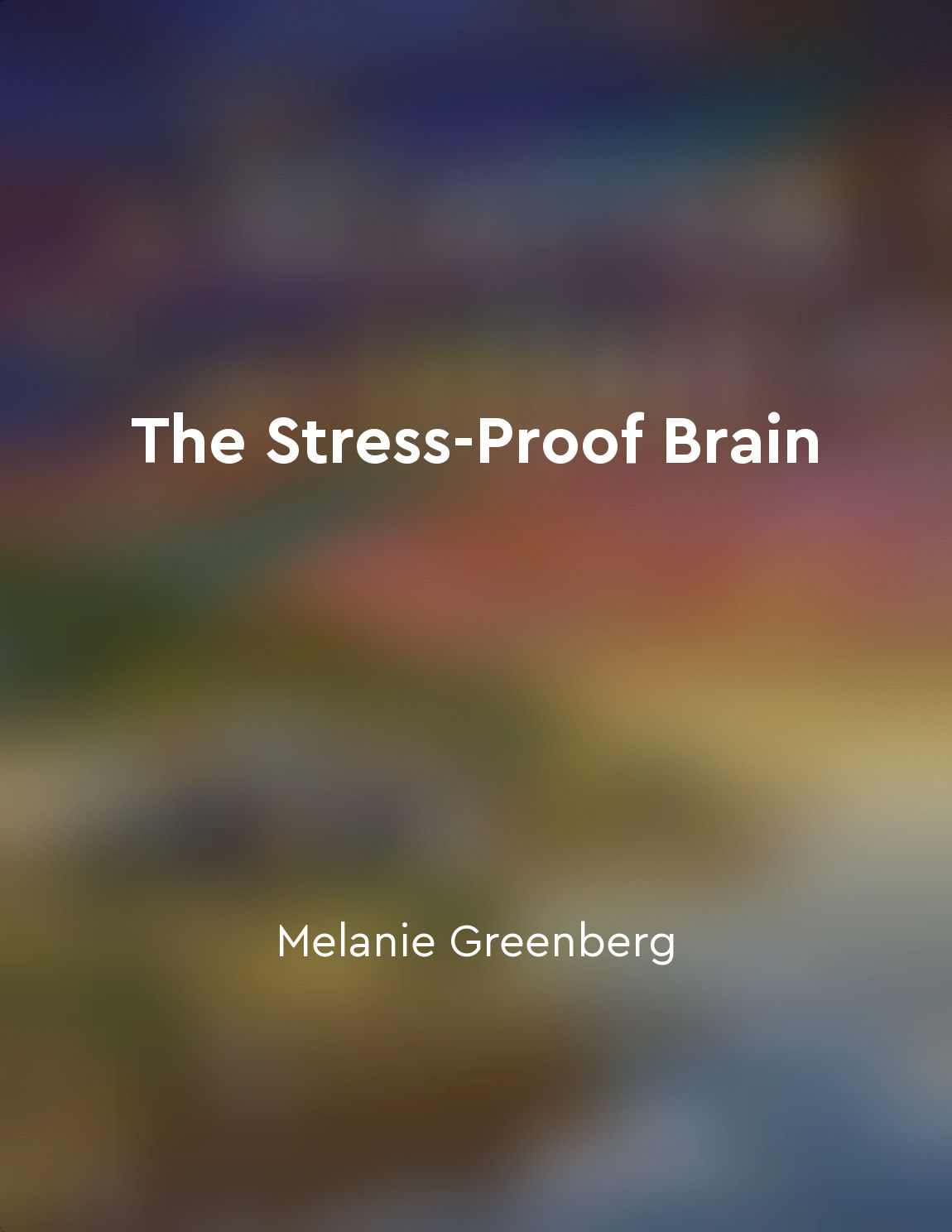Emotional intelligence can help manage stress triggers from "summary" of The Stress-Proof Brain by Melanie Greenberg
When we experience stress, it's often because something has triggered our body's fight-or-flight response, leading to a cascade of physical and emotional reactions. These stress triggers can vary from person to person and can be influenced by a wide range of factors, including our past experiences, beliefs, and current circumstances. Emotional intelligence can play a key role in helping us manage these stress triggers more effectively. By developing our ability to recognize and understand our emotions, we can become more aware of what is causing us to feel stressed in the first place. This self-awareness is the first step in being able to regulate our emotions and respond to stress in a more adaptive way. One of the core components of emotional intelligence is being able to identify and label our emotions accurately. When we can put words to what we are feeling, it can help us make sense of our experiences and prevent our emotions from becoming overwhelming. This can be particularly helpful when it comes to managing stress triggers, as it allows us to pinpoint exactly what is causing us distress and take steps to address it. Additionally, emotional intelligence can help us develop greater empathy and understanding for others, which can be beneficial in reducing stress triggers related to interpersonal conflicts. By being able to see things from another person's perspective, we may be better equipped to navigate difficult interactions and prevent them from escalating into full-blown stressors.- By honing our emotional intelligence skills, we can become more adept at managing stress triggers and preventing them from spiraling out of control. This can lead to a greater sense of calm, resilience, and overall well-being in the face of life's inevitable challenges.


